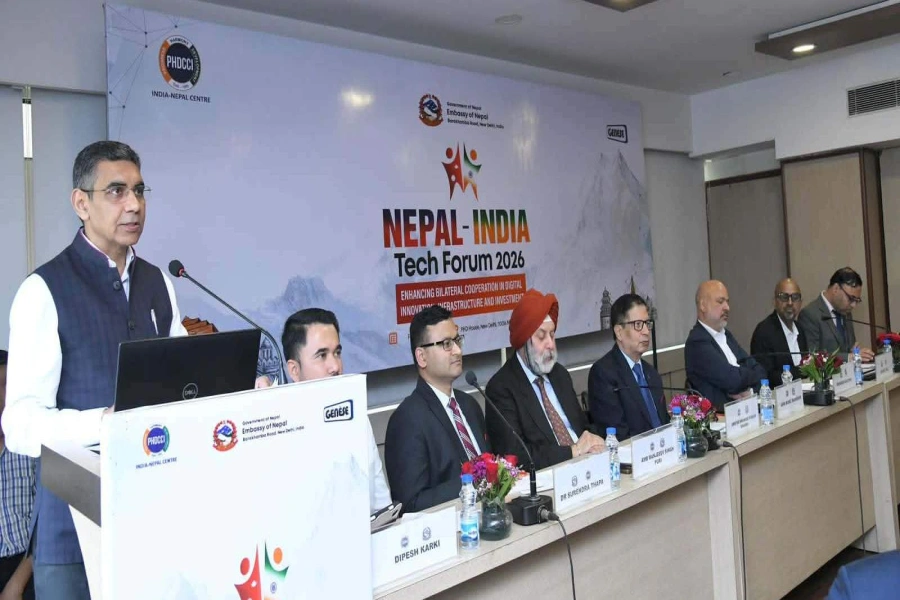Government and foreign policy experts should formulate a coherent and clear strategy to strengthen Nepal’s soft power
American political scientist and former Clinton administration official Joseph Nye in his book Soft power: The Means to Success in World Politics argues that soft power has the ability to get what you want through attraction rather than coercion or payments. It arises from the attractiveness of a country’s culture, natural resources, political ideas and politics.
In today’s complex and inter-dependent world, countries are connected by diverse social and political relationships rather than security and forces. The crux of soft power is that through attraction, a country can gain influence. Soft power is an important way for a country like Nepal to engage with other developed and developing nations where governments are competing for attention and influence.
Soft power has the ability to make friends and influence people through its multiple assets such as culture, language, education, tourism and values. It makes people love country rather than fear it. As Nepal is rich in culture and natural beauty soft power can be a foreign policy tool to boost its economy and international image. With the changing dynamics of powers developed countries, as well as Nepal’s neighbors like India and China, are making huge investment in boosting their soft power. Soft power can be no less important for Nepal, the country with unique geopolitical, geo-economic and geo-cultural importance.
Promoting and disseminating soft power through social media can shape national and global public opinion of any nation. Within the increasing international cultural contact, Nepal can promote its culture in regional and global forums to promote its international image. Rapid development of internet can make it even easier for Nepal to promote its international image and pursue its national interest.
Peacekeeping as a source of Nepal's soft power

Terrorism, migration and climate change have emerged as global problems. No single country, in isolation, can solve these problems. Soft power can be an effective tool for Nepal to solve such challenges and to become one of the nations of peace and harmony.
Given the nature of unpredictable changes in world politics and its challenges, soft power is more critical than ever before to secure national interest. Strengthening friendship and understanding, promoting peaceful co-existence, sharing knowledge with neighbors and other developed and developing nations of the world, Nepal can uphold its global image.
Capitalize on culture
What Nepal needs to do is create symbols and branding of Nepali culture, natural beauty, heritage and rare wild animals and herbs, which can mesmerize the global audience. Branding Nepali products offers an important opportunity to significantly strengthen its trading links and economic development. Hosting cultural festivals and events, promoting Nepali cultures, organizing movie festivals, promoting language, art and literature can create new symbols and brand image of Nepal in the international arena.
So how can Nepal promote its soft power? Tourism promotion can be one way. The number of tourists visiting Nepal is rising. Chinese and Indian tourists would be interested to purchase Nepali artifacts. Likewise, if we can build high-end hospitals, it can go a long way in promoting medical tourism as well. As Visit Nepal Year 2020 is approaching, Nepal should work in this direction. Tourism, after all, is one of the major drivers of Nepali economy. Music and literature are equally important. Performance of Nepathya Band in London, adoption of Blue Mimosa of Parijat in curriculum of University of Maryland, Global Citizen from Gulmi by Kul Chandra Gautam as a reference book in MBA course in Bentley University in the US must have created positive vibes about Nepal abroad. With these efforts, Nepal can win the hearts of global population.
Sports such as cricket and football also enhance Nepal’s image in global affairs. Business magnates like Binod Chaudhary and Shesh Ghale can play an influential role in symbolizing, branding and enhancing public diplomacy in the international arena. Participation of Nepali security forces in UN peacekeeping mission has already earned us international praise.
Nepal should project its soft power with strategic policy and strong conceptual clarity. The government and foreign policy experts should formulate a coherent and clear strategy to strengthen Nepal’s soft power in this postmodern and multi-civilizational international order. All this, however, depends on Nepal’s ability to carry out necessary reforms at home to make Nepal’s development attractive and persuasive to others. Nepal needs to formulate strong and clear soft power policy, underpinned by a solid theoretical and practical understanding of what soft power is and what it can and cannot do.
The author is a student of Master’s Degree in International Relations and Diplomacy at Tribhuvan University
ombhuwan.bb@gmail.com







































